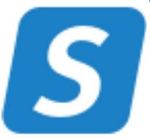Top Billing Softwares
Billing software is an essential tool for businesses seeking to streamline their invoicing processes. It automates the complex task of billing, ensuring accuracy and efficiency. This software helps manage payments, track interactions with customers, and generate financial reports. By using billing software, companies can reduce errors and enhance productivity, allowing them to focus on their core ... Read More
293 companies found
Product Description
Recurly is a flexible subscription management platform designed to streamline the way businesses handle their recurring billing and subscription needs. It caters primarily to companies that operate on a subscription model, whether they offer digital content, curated boxes, or software services. What sets Recurly apart is its user-friendly interface that makes it easy to manage customer subscripti... Read More
Users
- • No Data
Industries
- • No Data
Market Segment
- • No Data
Product Description
Zuora is a software solution designed to help businesses manage and optimize their subscription-based services. If you're a company that relies on recurring revenue, Zuora could be exactly what you need to simplify your billing and finance operations. Zuora offers a range of tools that help you handle every aspect of your subscription business—from customer acquisition to billing, collections, a... Read More
Users
- • No Data
Industries
- • No Data
Market Segment
- • No Data
Invoice2go
Product Description
Invoice2go is a user-friendly invoicing software designed to make the process of billing and payments straightforward for small businesses and freelancers. If you're a small business owner or a self-employed professional, you know how time-consuming managing invoices and tracking payments can be. That's where Invoice2go steps in to simplify your workload. With Invoice2go, you can quickly create a... Read More
Users
- • No Data
Industries
- • No Data
Market Segment
- • No Data
FastSpring
Product Description
FastSpring is a platform designed to make selling software and digital products easier for businesses, especially those offering software as a service (SaaS). The company focuses on helping businesses handle the complexities of managing payments, subscriptions, and customer accounts. One of the standout features of FastSpring is its ease of use. There's no need to worry about setting up various ... Read More
Users
- • No Data
Industries
- • No Data
Market Segment
- • No Data
Product Description
Chargebee is a tool designed to simplify the way businesses handle their subscriptions and billing. If you're running a software-as-a-service (SaaS) company, you know how complex managing subscriptions can get. Chargebee takes that complexity and turns it into an easy-to-manage process. Think of it as your go-to system for everything from setting up subscriptions to sending out invoices and colle... Read More
Users
- • No Data
Industries
- • No Data
Market Segment
- • No Data
Product Description
Rev.io is a flexible and reliable software designed to make billing and customer management straightforward for growing businesses, especially those in the telecommunications and managed services sectors. Imagine having a tool that can effortlessly handle the complexities of your billing cycles, so you can focus more on your customers and less on the administrative tasks. That's what Rev.io does b... Read More
Users
- • No Data
Industries
- • No Data
Market Segment
- • No Data
Cerillion Skyline
Product Description
Cerillion Skyline is designed to make managing subscriptions and recurring billing much more straightforward for businesses of all sizes. Its primary focus is on automation and ease of use, taking away the complexities involved in handling subscription services. The software covers everything from initial customer sign-up to the ongoing billing and management of their subscriptions. It helps busi... Read More
Users
- • No Data
Industries
- • No Data
Market Segment
- • No Data
Product Description
Cheddar is a subscription management and billing software designed to simplify your business operations. If you're running a company that relies on recurring revenue—such as a subscription service or a membership-based organization—Cheddar can help you streamline your billing and keep things organized. With Cheddar, you can easily set up various pricing plans to fit your needs, whether it’s simpl... Read More
Users
- • No Data
Industries
- • No Data
Market Segment
- • No Data
Product Description
jBilling is a software that helps businesses handle their billing and invoicing needs more smoothly. Designed with simplicity in mind, jBilling aims to make the often complicated process of billing easier and more efficient. Whether you run a small business or a large enterprise, this software offers a range of features to manage your billing cycle effectively. At its core, jBilling automates man... Read More
Users
- • No Data
Industries
- • No Data
Market Segment
- • No Data
Product Description
Spreedly is a software solution that makes online transactions simpler and more secure for businesses. It is designed for any company that accepts payments through multiple channels, such as websites, mobile apps, or other platforms. Spreedly offers a straightforward way to manage a variety of payment methods without having to invest in multiple systems. With Spreedly, you can connect to a wide r... Read More
Users
- • No Data
Industries
- • No Data
Market Segment
- • No Data
What is billing software and how does it work?
Understanding Billing Software
Billing software is a type of application designed to handle billing processes for businesses. This software automates the task of creating invoices, managing accounts receivable, and tracking payment-related data. It helps businesses streamline their financial operations by providing a centralized platform for handling billing tasks efficiently.
Key Components
Billing software includes several key components:
-
Invoice Generation: Automates the creation of invoices, ensuring that all necessary details such as client information, itemized list of services or products, and pricing are accurately included.
-
Payment Processing: Integrates with payment gateways to provide secure and efficient processing of transactions, allowing businesses to accept various forms of payment.
-
Client Management: Stores client information and transaction histories, helping businesses maintain organized records and better manage customer relationships.
-
Reporting and Analytics: Offers insights into billing data, such as outstanding payments and revenue streams, aiding businesses in financial forecasting and decision-making.
Functionality of Billing Software
Billing software functions by automating manual billing tasks. When a service is rendered or a product is sold, the software generates an invoice based on predefined templates. Users enter necessary details, such as items sold, quantities, and prices, and the software calculates totals, taxes, and discounts automatically.
Once the invoice is created, billing software enables businesses to deliver invoices to clients via email or other electronic means. The integration with payment gateways allows clients to pay directly through links in invoices, making the payment process seamless.
Efficiency and Automation
By automating billing processes, billing software reduces the likelihood of human error. This not only improves the accuracy of the billing and collection processes but also ensures timely delivery of invoices to clients. Automation also frees up time for businesses, allowing them to focus on core activities.
Security and Compliance
Billing software ensures that sensitive data, such as customer payment information, is securely managed. By integrating with secure payment gateways and adhering to regulations, such as GDPR and PCI compliance, billing software protects businesses and their clients from potential breaches.
Integration Capabilities
Modern billing software often integrates with other business systems, such as accounting software, CRM platforms, and ERP systems. This connectivity facilitates a seamless flow of data across different applications, ensuring consistency and accuracy in financial management.
Final Thoughts
Billing software is pivotal for businesses seeking to optimize their billing operations. By automating tasks, ensuring compliance, and enhancing client relations, billing software not only saves time but also significantly improves financial accuracy and efficiency. It offers businesses a scalable solution to grow and manage their financial processes in an organized manner.
What are the key features to look for in billing software?
User-Friendly Interface
When selecting billing software, ensure that it provides a user-friendly interface. An intuitive design helps users navigate through the application with ease, reducing the learning curve and boosting productivity. Look for software that allows users to perform tasks quickly, minimizing errors and enhancing efficiency.
Customizable Invoices
Billing software should include the ability to create customizable invoices. This feature enables businesses to incorporate their branding elements, such as logos and color schemes, to maintain a professional appearance. Customizable invoices can also cater to different client needs by personalizing fields and templates.
Recurring Billing and Subscription Management
For businesses offering subscription-based services, it's crucial that billing software supports recurring billing. This feature automates the billing process for recurring invoices, saving time and ensuring timely payments. Efficient subscription management tools handle changing subscription plans, upgrades, or downgrades without hassle.
Payment Gateway Integration
A vital feature of billing software is integration with multiple payment gateways. This integration enables customers to choose their preferred payment method, enhancing convenience and improving collection rates. The software should support major payment processors and allow seamless transactions.
Automated Payment Reminders and Follow-ups
Automated payment reminders are another essential feature to seek. These reminders reduce manual intervention by sending notifications to clients about upcoming or overdue payments. This automation can improve cash flow and lessen the risk of late payments.
Tax Calculation and Compliance
Billing software should offer built-in tax calculation and compliance features. Automated tax calculations ensure accuracy in billing and help in adhering to various local and international tax regulations. This feature is vital for businesses operating in multiple jurisdictions.
Reporting and Analytics
The ability to generate reports and conduct analytics is an indispensable feature in billing software. Reporting tools should provide insights into sales, revenue, and customer behavior. Analytics help make informed decisions by transforming raw data into actionable intelligence.
Integration with Accounting and CRM Systems
Choose billing software that integrates seamlessly with other business systems, such as accounting and CRM platforms. This integration reduces data entry redundancy and ensures consistency across systems. It streamlines operations by synchronizing customer and financial data.
Multi-Currency and Multi-Language Support
For businesses operating globally, billing software should support multiple currencies and languages. This feature ensures that invoices and transactions are accurate and comprehensible to international clients, improving the overall experience and expanding business reach.
Security and Data Protection
With the increasing emphasis on data security, it's crucial that billing software provides robust security and data protection features. Look for software that complies with security standards and offers encryption, secure access controls, and backup options to safeguard sensitive information.
Scalability
As businesses grow, so do their billing needs. Opt for billing software that can scale according to business requirements. The software should handle increasing transaction volumes, users, and clients without compromising performance.
By keeping these key features in mind, businesses can choose billing software that enhances operational efficiency, improves customer experience, and drives revenue growth. Careful selection of billing software ensures it aligns with business goals and adapts to changing needs.
How does billing software improve business efficiency?
Streamlining Financial Processes
Billing software simplifies financial processes by automating invoicing, scheduling, and payment collection. This saves time and minimizes human error, leading to fewer disputes and faster payments. Automation ensures invoices go out on time, enhancing cash flow and reducing manual intervention. Billing software can handle complex billing cycles effortlessly, adjusting bills as necessary without delay.
Accurate Financial Tracking
Accurate financial tracking is essential for any business. Billing software provides real-time insights into sales, revenues, and outstanding payments. This helps businesses monitor financial health, identify trends, and make informed decisions. Through detailed reports and analytics, companies can spot inefficiencies and address them promptly.
Integration with Other Systems
Billing software often integrates with other systems like accounting, CRM, and ERP solutions. This seamless integration reduces the need to enter data multiple times, minimizing errors and saving time. By ensuring all systems are aligned, businesses gain a comprehensive view of their operations, aiding in strategic planning and resource allocation.
Enhanced Customer Experience
Enhanced customer experience is integral to business success. Billing software improves customer interactions by providing accurate, easy-to-read invoices and flexible payment options. Customers appreciate timely and precise billing, which builds trust and encourages loyalty. Automated reminders and customized invoices further personalize the experience, catering to individual preferences.
Cost Reduction
Billing software helps reduce costs by eliminating paper invoicing, postage, and associated labor expenses. By switching to digital invoices, businesses cut down on paper waste and significantly reduce administrative costs. Moreover, automation lessens the need for manual oversight, allowing staff to focus on higher-value tasks rather than routine billing activities.
Security and Compliance
Security and compliance are critical concerns for businesses handling financial data. Billing software ensures data is encrypted and safely stored, protecting sensitive customer information. Regular updates and compliance checks help businesses adhere to the latest regulations, reducing the risk of costly penalties. Secure access controls limit data exposure to authorized personnel only.
Improved Time Management
By automating time-consuming billing tasks, businesses gain valuable time for strategic activities. Staff can allocate more time toward improving customer relations, marketing efforts, or product development. Efficient time management facilitated by billing software enhances overall productivity and allows businesses to scale operations with ease.
Simplified Auditing and Record-Keeping
Billing software simplifies the auditing and record-keeping process by maintaining detailed transaction logs. This organized record-keeping ensures that all financial data is readily accessible and easy to track, facilitating seamless audits. Auditors can quickly examine records without digging through piles of paperwork, ensuring compliance and accuracy.
Billing software's ability to streamline processes, improve financial transparency, and enhance customer interactions ultimately makes businesses more efficient. Through automation and integration, firms can reduce costs, manage time better, and focus on strategic growth initiatives.
Can billing software integrate with other tools and platforms?
Billing software serves as a crucial tool in the management of invoicing, payment tracking, and other financial activities. Its primary role is to streamline and simplify the billing process for businesses. One of the essential aspects of billing software is its ability to integrate with various other tools and platforms. This capability enhances its functionality and provides a seamless experience for users.
Integration with Accounting Software
Billing software often integrates with accounting software. This integration ensures that all financial data, such as invoices and payments, are automatically transferred between the two systems, thereby reducing manual data entry and errors. This automatic synchronization enables real-time updates of financial records, ensuring consistency and accuracy in financial reporting.
Customer Relationship Management (CRM) Integration
Integrating billing software with CRM systems allows businesses to manage customer data more effectively. This integration helps sync customer information, such as contact details and transaction history, between the two systems. It enables businesses to have a comprehensive view of customer interactions and financial transactions in one place, facilitating better customer service and relationship management.
E-commerce Platform Integration
For businesses operating online stores, integration with e-commerce platforms can be vital. Billing software can be connected to these platforms to automate the invoicing process whenever a sale is made. This integration helps in managing sales data efficiently and ensures accurate billing based on the transactions occurring in the e-commerce store.
Payment Gateway Integration
Billing software can also integrate with various payment gateways, making it easier for customers to pay invoices. By facilitating connections with popular payment solutions, businesses can offer multiple payment methods, enhancing customer convenience. Integration with payment gateways ensures that payment transactions are recorded and updated automatically within the system, improving cash flow management.
Enterprise Resource Planning (ERP) Integration
ERP systems are comprehensive solutions that manage various aspects of business operations. Integrating billing software with ERP systems ensures that financial data is consistent across the organization. This integration enables better financial planning, forecasting, and resource management, as it provides a holistic view of the business’s financial health.
Project Management Tool Integration
For businesses that bill clients based on project work, integrating billing software with project management tools can be beneficial. This integration enables businesses to track billable hours and project expenses directly. By consolidating this data, businesses can create accurate invoices based on project progress and resource utilization.
Cloud Storage and File Sharing Integration
Billing software often supports integration with cloud storage and file sharing platforms. This capability ensures that invoices, payment receipts, and other financial documents can be stored and accessed easily. By integrating with cloud solutions, businesses can manage and share financial documents more efficiently.
In summary, the integration capabilities of billing software with various tools and platforms significantly enhance its utility. These integrations help streamline processes, reduce administrative work, and ensure data consistency across systems. This interconnectedness aids businesses in maintaining efficient financial operations while providing enhanced customer service.
What are the benefits of using cloud-based billing software?
Cloud-based billing software has become a vital tool for businesses across various industries. This type of software offers several key benefits that can enhance business operations and streamline billing processes.
Accessibility
One of the primary advantages of cloud-based billing software is accessibility. Businesses can access their billing data from anywhere with an internet connection. This flexibility is crucial for remote teams and allows companies to manage billing processes without being tied to a physical location. Real-time access to data ensures that businesses can maintain up-to-date information, leading to more accurate billing and invoicing.
Scalability
Cloud-based billing software provides unparalleled scalability, making it an excellent choice for growing businesses. As a business expands, the software can easily scale to accommodate an increase in transactions or customers. This flexibility helps eliminate the need for costly upgrades or additional infrastructure, thus yielding savings in both time and money.
Cost-Effectiveness
Utilizing cloud-based billing software often reduces costs related to hardware, maintenance, and IT personnel. With subscription-based pricing models, businesses pay for what they use, which tends to lower up-front costs. This cost-effective approach avoids the significant expenses of purchasing and maintaining on-premise billing systems.
Automatic Updates
Cloud-based software frequently offers automatic updates, ensuring that businesses always use the latest version of the system. These updates often include security patches, new features, and performance improvements. By having an up-to-date system, companies can focus on their core operations without worrying about software maintenance.
Enhanced Security
Security is a top priority for businesses handling sensitive billing information. Reputable cloud-based billing software providers employ advanced security measures to protect data. This includes encryption, regular security audits, and compliance with industry standards. These security features help safeguard business and customer data against breaches and unauthorized access.
Real-Time Integration
Cloud-based billing software often integrates seamlessly with other business systems, such as accounting and CRM platforms. This real-time integration creates an interconnected system that ensures data consistency across various departments. Streamlined integration can result in more efficient processes and improved data accuracy, eliminating errors from manual entry.
Improved Customer Relations
With cloud-based billing software, businesses can enhance their customer service capabilities. Customers can access their billing information through secure portals, review invoices, and make payments conveniently. Easy access to billing information leads to faster query resolutions, reinforcing positive business-customer relationships.
Business Continuity and Disaster Recovery
By being hosted in the cloud, billing software ensures continued operation in the event of disaster or disruption. With data stored securely off-site, businesses mitigate the risk of data loss and are better equipped to recover quickly from unexpected events. This factor boosts resilience and ensures that billing operations can proceed without significant downtime.
In summary, cloud-based billing software delivers numerous benefits, including accessibility, cost-effectiveness, enhanced security, and reliable integration. It is an adaptable and efficient solution that helps businesses optimize their billing functions while supporting growth and innovation.
How does billing software ensure data security and compliance?
Billing software plays a crucial role in managing financial transactions and sensitive customer information. Ensuring data security and compliance is essential, as compromised billing data can lead to financial losses and legal consequences. Here's how billing software addresses these challenges:
Data Encryption
Billing software employs data encryption to protect sensitive information. By converting data into unreadable code, only authorized parties with the decryption key can access the original information. Encryption is applied both to data at rest and in transit, ensuring protection from potential breaches or unauthorized access.
User Authentication and Access Controls
To safeguard data, billing software implements robust user authentication and access controls. This includes multi-factor authentication (MFA) that requires users to provide two or more verification factors to gain access. Additionally, role-based access control (RBAC) is used to restrict user permissions, ensuring individuals can only access information necessary for their role.
Regular Security Updates and Patches
Billing software is regularly updated with security patches to mitigate vulnerabilities. Software providers continuously monitor for security threats and respond with patches that fortify the software against new and evolving threats. This proactive approach minimizes the risk of cyberattacks.
Data Backup and Recovery
Data loss due to hardware failure, cyberattacks, or human error is a significant risk. Billing software includes automated data backup and recovery processes to protect against such events. Regular backups ensure that data can be restored to its most recent state, minimizing downtime and loss.
Compliance with Industry Standards
To address compliance, billing software adheres to relevant industry standards and regulations, such as the Payment Card Industry Data Security Standard (PCI DSS). By conforming to these standards, software providers ensure that their platforms meet established security and operational criteria, demonstrating a commitment to safeguarding customer data.
Continuous Monitoring and Auditing
Billing software incorporates continuous monitoring and auditing features to track and analyze activities related to billing and data access. These processes identify any unusual activity or unauthorized access, allowing for a timely response to potential threats.
Data Masking
Data masking is used within billing software to protect identifiable information by obscuring it within the main application interface. This method ensures that the actual data is hidden during use, testing, and analytics, reducing the risk of exposure.
Legal and Regulatory Compliance
To ensure compliance, billing software remains updated with legal requirements such as the General Data Protection Regulation (GDPR) and other local and international laws. Software providers routinely audit their systems to verify compliance with these regulations, safeguarding against legal repercussions.
Audit Trails
Audit trails maintain records of all billing transactions and user interactions within the software. This helps in tracing any discrepancies or unauthorized actions, aiding in both forensic analysis and enhancing security by identifying areas needing improvement.
By integrating these security and compliance measures, billing software effectively protects sensitive data, ensuring that financial transactions and customer information remain secure. This comprehensive approach mitigates risks associated with data breaches, ensuring the trust and safety of all users involved.
What should you consider when choosing billing software for your business?
When selecting billing software for your business, several essential factors should be considered to ensure it aligns with your company’s needs and objectives. Billing software plays a key role in managing financial transactions and maintaining operational efficiency.
1. Compatibility with Business Size:
Ensure the billing software you select is suitable for your business size. Smaller businesses may require basic functionalities, whereas larger enterprises might need more advanced features to manage complex billing processes. Scalability is crucial if you anticipate growth, allowing the software to grow with your business.
2. Ease of Use:
The software should be user-friendly, providing intuitive navigation for users with varying technical skills. An easy-to-use interface reduces the learning curve for your team and minimizes potential errors in billing. Consistently assess the software's usability to ensure efficient operations.
3. Integration Capabilities:
Seamless integration with existing systems such as CRM, ERP, or accounting software is vital. This eliminates data silos and enhances overall efficiency, providing a more comprehensive view of customer and financial data. Review the available APIs and plug-ins to determine integration suitability.
4. Security Features:
Billing software handles sensitive financial data, making robust security measures imperative. Look for features such as data encryption, user authentication, and compliance with standards like GDPR or PCI DSS. A secure system protects against unauthorized access and data breaches.
5. Customization Options:
Each business has unique billing requirements. Opt for billing software that offers customizable features to adapt to your specific needs. This flexibility allows for personalized invoices, pricing models, and reporting functions, ensuring all processes align with internal policies.
6. Pricing Structure:
Analyze the pricing model of the billing software. Some may offer subscription-based pricing, while others might charge per transaction or user. Ensure that the cost aligns with your budget and consider any hidden fees. It's essential to understand what you're paying for and how the costs might evolve over time.
7. Automation and Efficiency:
Automating repetitive tasks such as invoice generation and payment reminders can save significant time. Choose billing software that supports automation, reducing manual effort and increasing accuracy. Automation can help streamline operations and improve cash flow management.
8. Customer Support and Training:
Reliable customer support is crucial for troubleshooting software issues. Ensure that the provider offers adequate support channels and resources such as tutorials or training sessions. Continuous support and training empower your team to use the software effectively.
9. Reporting and Analytics:
Effective billing software offers robust reporting and analytics capabilities. It should provide insights into cash flow, outstanding invoices, and transaction trends. These insights can facilitate informed decision-making and strategic planning for your business.
10. Client and Vendor Relationships:
Consider how the software handles client and vendor interactions, including billing communications, payment processing, and feedback mechanisms. Efficient management of these relationships can foster trust and enhance customer satisfaction.
Evaluating these factors will assist in choosing billing software that meets the unique needs of your business, ensuring efficient financial management and growth potential. Always align software selection with your business goals and operational requirements to achieve maximum return on investment.









